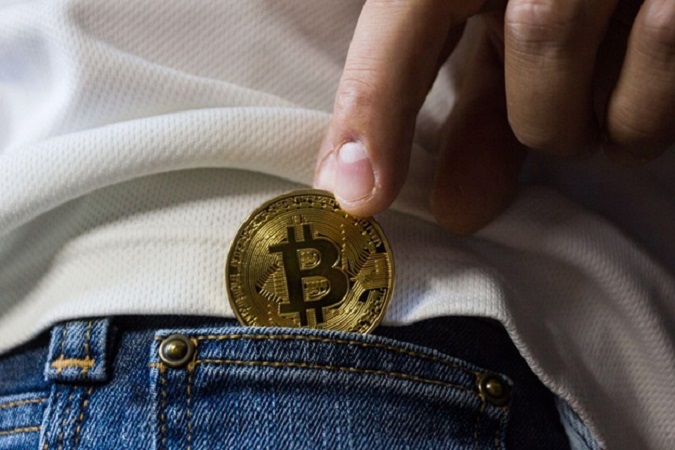
With cryptocurrencies raising popularity over the last couple of years, ensuring the safety of your digital assets is of utmost importance. For instance, among the critical decisions facing every crypto enthusiast is the choice between hot and cold wallets for storage. Before we dive into the nuances of these wallets, let’s first explore an often-underappreciated tool in the arsenal of security: the Virtual Private Network (VPN).
Guarding Your Digital Assets: The Role of VPNs
Picture this: you’re in a bustling coffee shop, sipping on your favorite brew while managing your crypto portfolio. Little do you know, prying eyes may be lurking in the digital shadows. This is where a VPN becomes your digital knight in shining armor. By encrypting your internet connection, a reliable solution like CyberGhost VPN adds an extra layer of security, shielding your crypto transactions from potential threats. In essence, it makes it significantly more challenging for hackers to intercept sensitive information, ensuring a secure environment for your crypto dealings.
Now, as the VPN keeps your digital interactions private, let’s delve into the primary actors in the crypto storage drama: hot and cold wallets.
Hot Wallets: Convenient but Vulnerable
Hot wallets are the swift, accessible vaults of the crypto world. They operate online, helping you to ensure seamless trading and fund transfers. Think of them as the digital wallets in your pocket, ready for action whenever you need them. However, as with many conveniences, there’s a trade-off. Hot wallets are connected to the internet, making them vulnerable to cyber attacks. In fact, research indicates that a significant number of crypto thefts involve hot wallets due to their inherent susceptibility.
These wallets come in various forms, including online wallets, mobile wallets, and exchange wallets. While their convenience is undeniable, users must understand the risks associated with having their assets constantly connected to the internet.
Cold Wallets: Fortresses of Security
Enter cold wallets, the Fort Knox of crypto storage. Unlike their hot counterparts, cold wallets operate offline, making them immune to online threats. They come in two primary forms: hardware wallets and paper wallets. Hardware wallets are physical devices that store your cryptographic keys offline, ensuring that your assets remain safe from online hackers. On the other hand, paper wallets involve printing out your crypto keys and storing them in a physical, secure location. Both options provide an added layer of security, safeguarding your assets from the array of cyber threats that lurk in the digital realm.
Numbers Don’t Lie: The Security Game
Let’s back this up with some cold, hard facts. Recent studies reveal that over 90% of reported crypto thefts involve hot wallets. This statistical evidence underscores the vulnerability of these online wallets and reinforces the case for opting for cold storage solutions. It’s like comparing a secure underground vault to a wallet loosely hanging out of your back pocket. Choosing a cold wallet significantly reduces the risk of falling victim to online attacks and ensures a safer long-term storage solution for your digital assets.
The Human Factor: Understanding User Behavior
Beyond the technical aspects, user behavior plays a pivotal role in crypto security. Consider this analogy: you might have the sturdiest lock on your front door, but if you leave the key under the doormat, it becomes a moot point. Similarly, ensuring your passwords are safe by using secure password managers like 1Password, coupled with responsible practices like two-factor authentication, significantly enhances the security of your crypto assets. Educating oneself on potential phishing attempts and practicing digital hygiene is as crucial as selecting the right wallet type.
Balancing Act: The Right Mix of Security Measures
In the grand scheme of crypto security, employing a VPN is like having a trusty sidekick, enhancing your overall defense against digital threats. It forms a critical part of the holistic approach required to fortify your digital fortress. Remember, it’s not merely about the type of wallet you choose – it’s about striking the right balance. If convenience is your top concern and you’re actively trading, a hot wallet might be your go-to. However, if security is non-negotiable, especially for long-term storage, a cold wallet emerges as the unbeatable choice.
Conclusion
In the cryptocurrency landscape, where technological advancements occur at breakneck speed and new currencies emerge every year, securing your digital assets is a responsibility that should not be taken lightly. The world of crypto storage is nuanced, with each option having its pros and cons.
As you navigate the crypto waters, remember that the key to a robust defense lies in a combination of factors. Your choice of wallet, coupled with responsible user behavior and the use of online security tools like VPNs, collectively builds a sturdy digital fortress. Moreover, staying informed and adapting your security measures to the evolving landscape is paramount. So, whether you’re opting for the quick-access hot wallet or the offline sanctuary of a cold wallet, ensure you’re equipped with the knowledge and tools needed to safeguard your crypto assets for the long haul.

